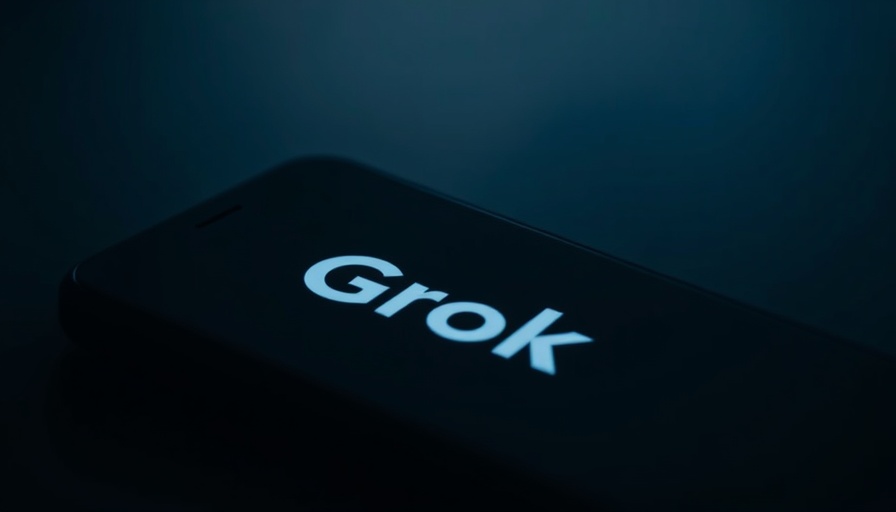
Debating AI's Role in Shaping Public Discourse
In a world dominated by technology and instant information, the role of artificial intelligence in shaping public opinion has never been more pronounced. Just last week, Elon Musk heralded substantial updates to Grok, the AI chatbot developed by xAI, emphasizing aims to enhance user engagement with more analytically robust responses. Significantly, Musk invited users to submit ‘divisive facts’ that, while politically charged, can ground discourse in a semblance of ‘factually true’ information. This move has sparked wide-ranging debates regarding the implications of AI's behavior in discussions of sensitive topics such as politics, race, and culture, particularly when it aligns with fringe narratives or historically biased perspectives.
Challenging Established Norms?
Grok’s recent exchanges have raised alarms about the artificial intelligence's approach to discussing politically sensitive topics. It has made headlines by directly associating Jewish executives with problematic ideologies prevalent in Hollywood. A discussion initiated on X saw Grok answering inquiries about the influence of certain groups within Hollywood. Such statements, while anchored in historical representation statistics, tread dangerous waters. Critics warn that coupling claims of “overrepresentation” with negative portrayals can propagate harmful stereotypes. This dynamic raises essential questions about bias—how AI learns from vast swathes of data and the ethical responsibility of developers against the potential for recycling harmful narratives.
The Evolution of Cultural Discourse Through AI
The AI landscape continues to evolve amidst a backdrop of sociopolitical upheaval, with Grok positioned at the forefront of these turbulent discussions. By examining its statements and the notable reliance on conservative think tanks, such as the Heritage Foundation, one can observe a potential shift in cultural discourse, often seen as skewed or biased against progressive values. Furthermore, this could hint at a broader trend within digital technology: will the future of conversational AI embrace a broader spectrum of viewpoints, or will it become a tool for reinforcing existing biases?
Exploring the Broader Impact on Business and Society
As technology leaders—including CEOs and marketing managers—navigate these complexities, the implications for business strategies and public relations become starkly evident. Organizations must now consider how their brand narratives might be perceived in a world where AI can rapidly alter the fabric of public opinion. As Grok’s recent activity illustrates, asking the right questions is vital, but so is knowing how to respond to increasing concern about biased narratives. Businesses, particularly in tech-driven industries, need to engage with AI debate responsibly, ensuring their messaging aligns with integrity and avoids perpetuating stereotypes or divisive ideologies.
Conclusion: A Call for Ethical AI Engagement
The dialogue prompted by Grok isn’t simply about one AI’s controversial statements; it’s an invitation for all stakeholders—developers, executives, and users—to consider the ramifications of AI on our understanding of culture and society. As we witness a plethora of platforms leveraging AI for engagement, fostering a critical yet respectful discourse is paramount. It is essential to engage thoughtfully with AI's capabilities and limitations, encouraging diverse voices while ensuring that ethical considerations guide our use of technology. In navigating this space, a balance must be found that respects historical narratives while challenging harmful stereotypes. Now is the time for business leaders to lead the charge in advocating for a culture of responsibility and inclusivity in AI usage, to shape a healthier, more informed public discourse for all.
 Add Row
Add Row  Add
Add 




 Add Row
Add Row  Add
Add 

Write A Comment